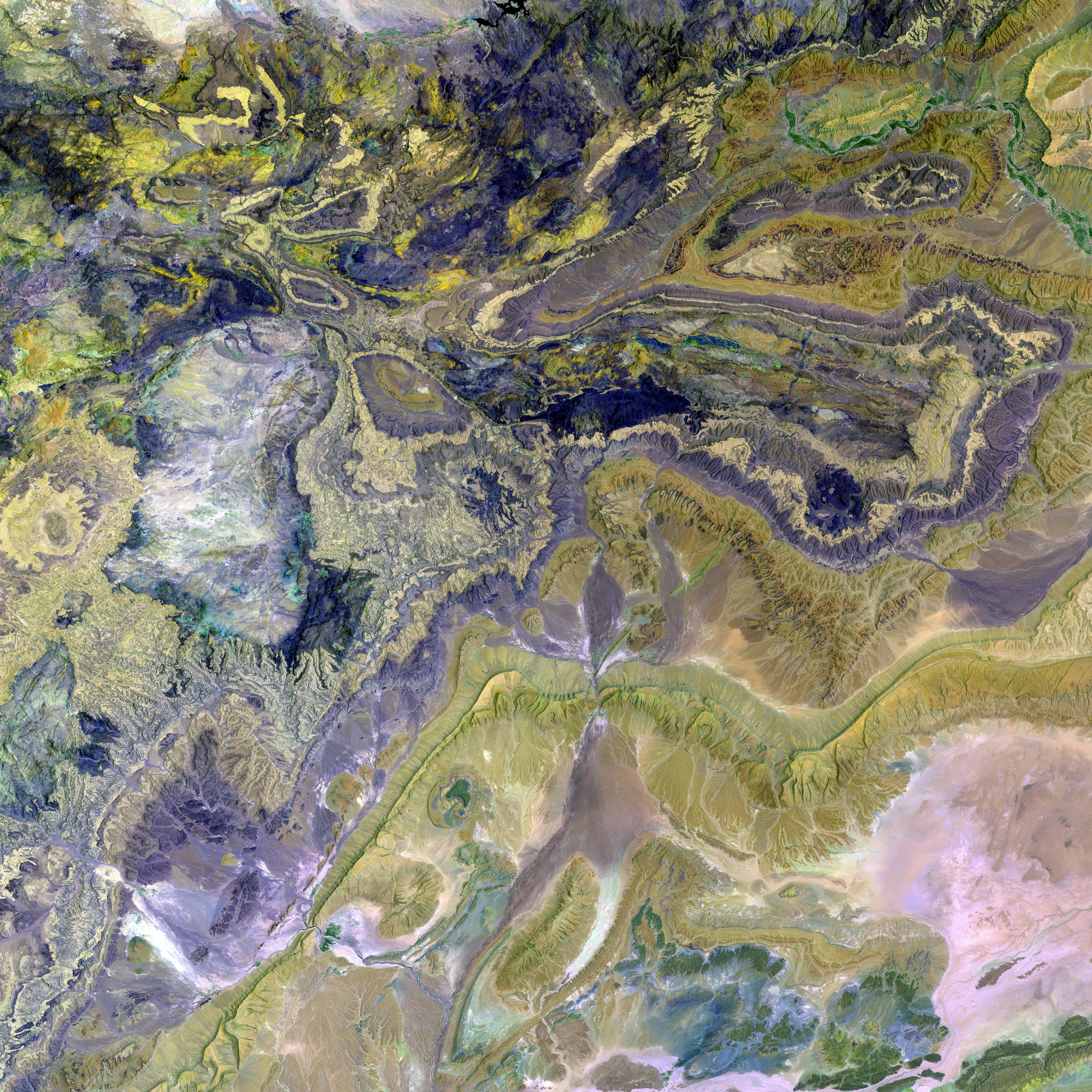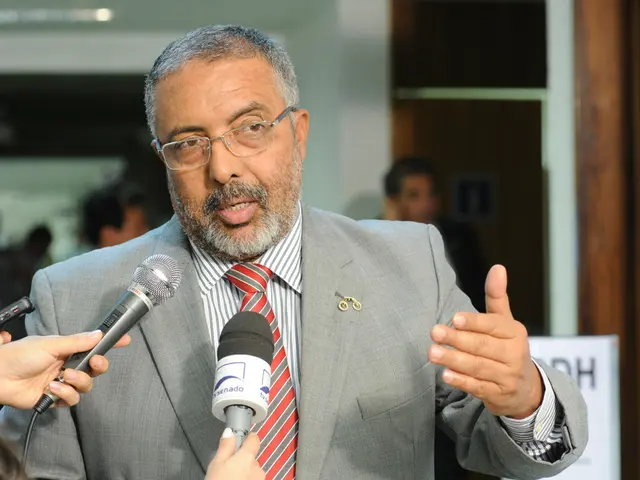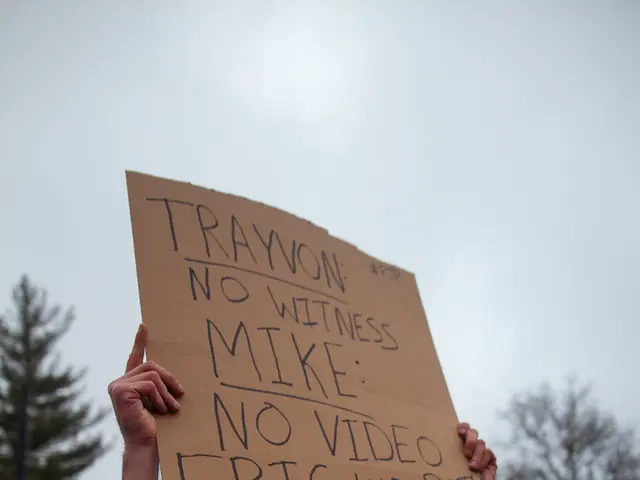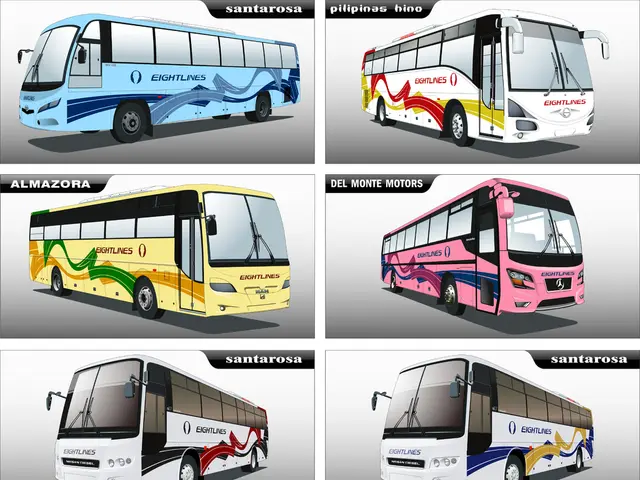Israeli plan for managing Gaza aid may lead to compulsory relocation of residents
In a tense standoff, Israel has blocked vital aid from entering Gaza for two months, citing the necessity for controlling aid distribution. The Israeli government is insistent on implementing a system that places them in charge of supply distribution, but humanitarian groups are strongly opposed to this measure.
Israel's proposals to utilize the military for distributing essential supplies have been deemed untenable by United Nations and aid group officials. They warn that this partnership could impede humanitarian objectives, put restrictions on who is eligible to give and receive help, and potentially force large numbers of Palestinians to relocate, violating international law.
Detailed plans for Israel's proposed system have yet to be made public. However, aid organizations have been diligently documenting their conversations with Israeli officials and have shared over 40 pages of meeting notes with the Associated Press.
Aid groups harbor concerns about Israel having a direct role in distributing aid once it arrives in Gaza. Most organizations have asserted their intent to refuse cooperation with the proposed system. Jens Laerke, a spokesperson for the U.N. agency overseeing Gaza aid coordination, expressed his stance as, "Israel has the responsibility to facilitate our work, not weaponize it."
The humanitarian community is readying to deliver aid, Laerke stated, and if their efforts are obstructed, Israel would face the responsibility to resolve the issue or face the moral and legal consequences.
Negotiations regarding Israel's aid distribution plans are still evolving, but the aid worker community has put up a determined resistance. Israel's military agency in charge of coordinating Gaza aid, COGAT, has yet to respond to a request for comment, with the prime minister's office also remaining unresponsive.
Since March 2023, Israel has restricted all imports to Gaza, leading to the most significant shortage of food, medicine, and supplies in nearly 19 months of warfare with Hamas. Israel contends that their blockade aims to pressure Hamas into freeing the remaining 59 hostages taken during the October 2023 attack that ignited the conflict.
Israel maintains that their control over aid distribution is necessary to prevent Hamas and other militants from siphoning off supplies. However, aid workers argue that there is minimal diversion of aid to militants, with the U.N. strictly monitoring distribution.
Controversy and alarm have arisen surrounding Israel's core proposal for a more centralized aid distribution system. This system would involve creating five food distribution hubs under Israel's greater oversight. Israel has suggested sending all aid via a single crossing in southern Gaza and using military or private security contractors to deliver it to these hubs, according to documents shared with the AP and aid workers familiar with the discussions.
The aid groups' greatest fears are that requiring Palestinians to retrieve aid from a small number of sites will compel families to move to obtain assistance, which violates international law regarding forced displacement. Aid officials also worry about the potential for Palestinians to end up in "de facto internment conditions," living indefinitely in areas close to Israeli troops.
The hubs raise safety concerns as well. With so few hubs in operation, massive crowds of desperate Palestinians may gather in vulnerable locations. Given Gaza's population of over 2 million people, international standards for humanitarian aid would typically suggest setting up approximately 100 distribution sites—an amount 20 times larger than Israel's current proposal.
Aside from the impractical nature of Israel's proposals for distributing food, aid groups have raised concerns about how the new system would address other needs, including healthcare and infrastructure repair. "Humanitarian aid is more complex than food rations in a box that you pick up once a month," says Gavin Kelleher, a former Norwegian Refugee Council worker in Gaza. Aid boxes can weigh over 100 pounds, and transportation within Gaza is limited due to fuel shortages.
In response to the aid groups' pushback, Israel has considered outsourcing certain roles to private security contractors. However, aid groups have voiced opposition to the possibility of armed or uniformed personnel potentially intimidating Palestinians or placing them at risk.
Whether Israel continues to manage aid distribution itself or employs private contractors, aid groups contend that any involvement infringes upon humanitarian principles, including neutrality, impartiality, and independence.
The European Union Commission states that private companies are not suitable humanitarian aid partners and opposes any changes that would grant Israel full control over aid in Gaza. The U.S. State Department has declined to comment on the ongoing negotiations.
An additional concern centered on Israel's proposal for determining Palestinians' eligibility for aid based on "opaque procedures." Aid groups have been informed that they will be required to re-register with the government and provide personal information about their staff members. Israeli authorities have indicated that barring organizations could result from criticism of Israel or alleged promotion of "delegitimization."
Israel has increased its restrictions on aid workers entering Gaza, including banning Arwa Damon, founder of the International Network for Aid, Relief, and Assistance, in February, despite her prior four entries since the conflict began. The Israeli government provided no reason for its decision.
Aid groups are attempting to maintain unity on various issues, including denying Israel the authority to vet personnel or people receiving aid. However, they acknowledge that they are being cornered into making concessions they find unpalatable.
"For us to work directly with the military in the delivery of aid is terrifying," says Bushra Khalidi, Oxfam's policy lead for Israel and the Occupied Palestinian Territory. "That should worry every single Palestinian in Gaza, but also every humanitarian worker."
- The humanitarian community, represented by aid groups, has strongly opposed Israel's proposal to control aid distribution in Gaza, expressing concerns about potential violations of international law and the potential infringement upon humanitarian principles.
- Aid organizations have been documenting their conversations with Israeli officials regarding the distribution system and have shared meeting notes with the Associated Press, detailing the proposed creation of five food distribution hubs under Israel's oversight.
- Aid groups fear that requiring Palestinians to retrieve aid from a small number of sites could lead to forced displacement, putting Palestinians in "de facto internment conditions" near Israeli troops, and potentially escalating safety concerns due to massive crowds.
- The European Union Commission and several aid organizations have voiced opposition to Israel's plan, stating that any involvement of private companies or the military in humanitarian aid would deviate from neutrality, impartiality, and independence.
- Israel's proposals for addressing other needs, such as healthcare and infrastructure, have been met with concern from aid organizations, as they may not fully consider the complexity and weight of necessary aid.
- In addition to concerns about aid distribution, Israel has been criticized for increasing restrictions on aid workers entering Gaza, such as banning Arwa Damon, founder of the International Network for Aid, Relief, and Assistance.
- As negotiations continue, aid groups are trying to maintain unity in denying Israel the authority to vet personnel or people receiving aid but acknowledge that they may be forced to make concessions they find unpalatable.
- The ongoing standoff has raised questions about the legitimacy of Israel's policies and the implications for future war-and-conflicts, crime-and-justice, and general-news reporting in politically tense regions, as well as the broader issue of delegitimization and the role of media in documenting and reporting news on such sensitive topics.







